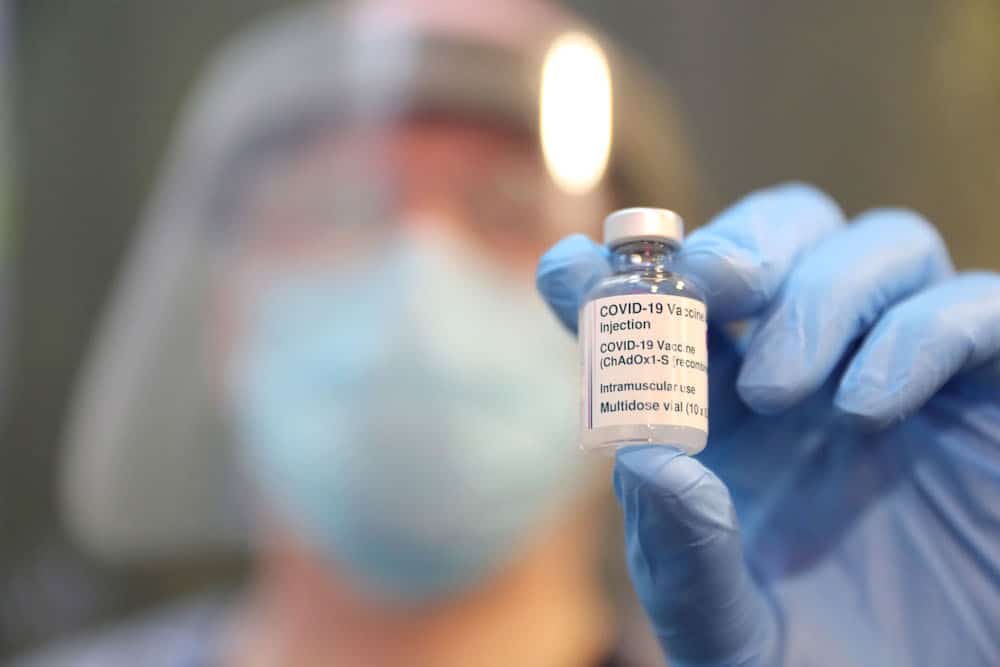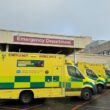
There has been five further Covid-related deaths reported in Northern Ireland in the last 24 hours.
The total number of deaths now stands at 3,263 – 18 of which occurred in the last seven days, according to the Department of Health’s daily dashboard.
The Armagh, Banbridge and Craigavon borough has recorded 442 – up one – deaths to date; five of which occurred in the last seven days – still the highest death rate over the last week in NI.
There have been 252 – up one – deaths in the Newry Mourne and Down district, one of which occurred in the past seven days, while Mid Ulster accounts for 308 deaths, one of which have occurred in the past seven days.
There were 2,391 – down from 2,605 – positive cases in the last 24 hours, and 14,970 positive cases in the last seven days, which is on a decrease on the rolling average.
Within the past 24 hours, there were 205 positive cases in Armagh, Banbridge and Craigavon – the fifth highest in NI.
There were 184 cases in Newry, Mourne and Down (fourth lowest) while Mid Ulster, once again, recorded the lowest with 129. Belfast – the highest in NI – recorded 391 positive cases.
There are 515 – up from 506 – patients in hospitals across Northern Ireland as a result of the virus.
There have been 241 admissions in the last seven days, compared with 304 patients who have been discharged.
There are currently 128 – up from 127 – Covid patients in Southern Trust hospitals, 68 of whom are in Craigavon Area Hospital. There are 15 in Newry’s Daisy Hill Hospital. There are 30 in South Tyrone Hospital.
For the second day in a row there are currently no Covid patients in Northern Ireland requiring ventilation.
There are four patients with Covid-19 in hospital intensive care units. There are currently 20 ICU beds available.
Hospital capacity currently sits at 108% – up 1%.
Meanwhile, Health Minister Robin Swann is inviting people across Northern Ireland to have their say on the future of Urgent and Emergency Care.
The Minister today (Wednesday) launched a public consultation on the findings of the Review of Urgent and Emergency Care. It will run until June 15, 2022.
Mr Swann said: “The public consultation document sets a clear way forward for urgent and emergency care services. I believe that the proposed reforms will help to ensure that all citizens in Northern Ireland have equal access to safe urgent and emergency care services, tailored to their specific needs, at the right time and in the right place.
“I fully recognise the severe pressures currently facing our hospitals and in particular our Emergency Departments. Far too many people are waiting far too long to access urgent and emergency care services. This falls far short of the service we all strive to provide.
“Unfortunately there is no quick fix. Addressing the current situation will required sustained effort and additional recurrent funding, including the building up of hospital capacity. That is why we need the long-term plan set out in the consultation document. Our staff continue to do all they can to provide the best possible service in hugely challenging circumstances. We owe it to them and everyone using these services to secure major and lasting improvements.
“We are already investing in our workforce and have delivered on the commitment to create an additional 900 nursing and midwifery student places. This means that in 2021/22 we commissioned a total of 1,325 nursing and midwifery training places, the highest on record and an 86% increase on 2015/16. We are also supporting development of the healthcare workforce by commissioning a new Paramedic BSc programme in 2021 and creating a local supply of Physician Associates to bolster clinical teams.”
The consultation sets out proposals under three strategic priorities:
* Priority one will see the development of an integrated urgent and emergency care service. Building on the work of the No More Silos initiative, this will see standardisation of service delivery across the region, including the development of Urgent Care Centres, the development of standardised pathways across all Trusts and, ultimately, the development of a regional Phone First number.
* Priority two is about capacity, co-ordination and performance. This covers important questions around the bed capacity in our hospitals as well as in acute care delivered in peoples’ homes. It is also aimed at ensuring that services are operating as they should and to the highest standard.
* Priority three will see the development of a regionalised approach to intermediate care, which will focus on healthcare delivered at home, providing better patient outcomes and recovery.
Minister Swann concluded: “Urgent and emergency care services belong to us all and this is a chance to shape and improve those services to ensure they are fit to meet all of our needs now and into the future. The mantra of urgent and emergency care reform is about seeing the right person, in the right place, first time. I urge everyone to consider and respond to the proposals set out in this public consultation.”


